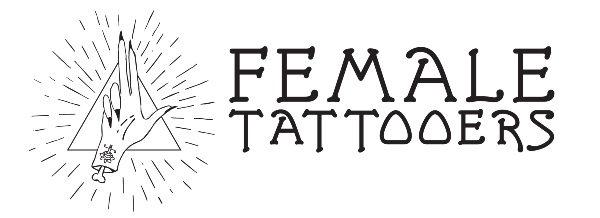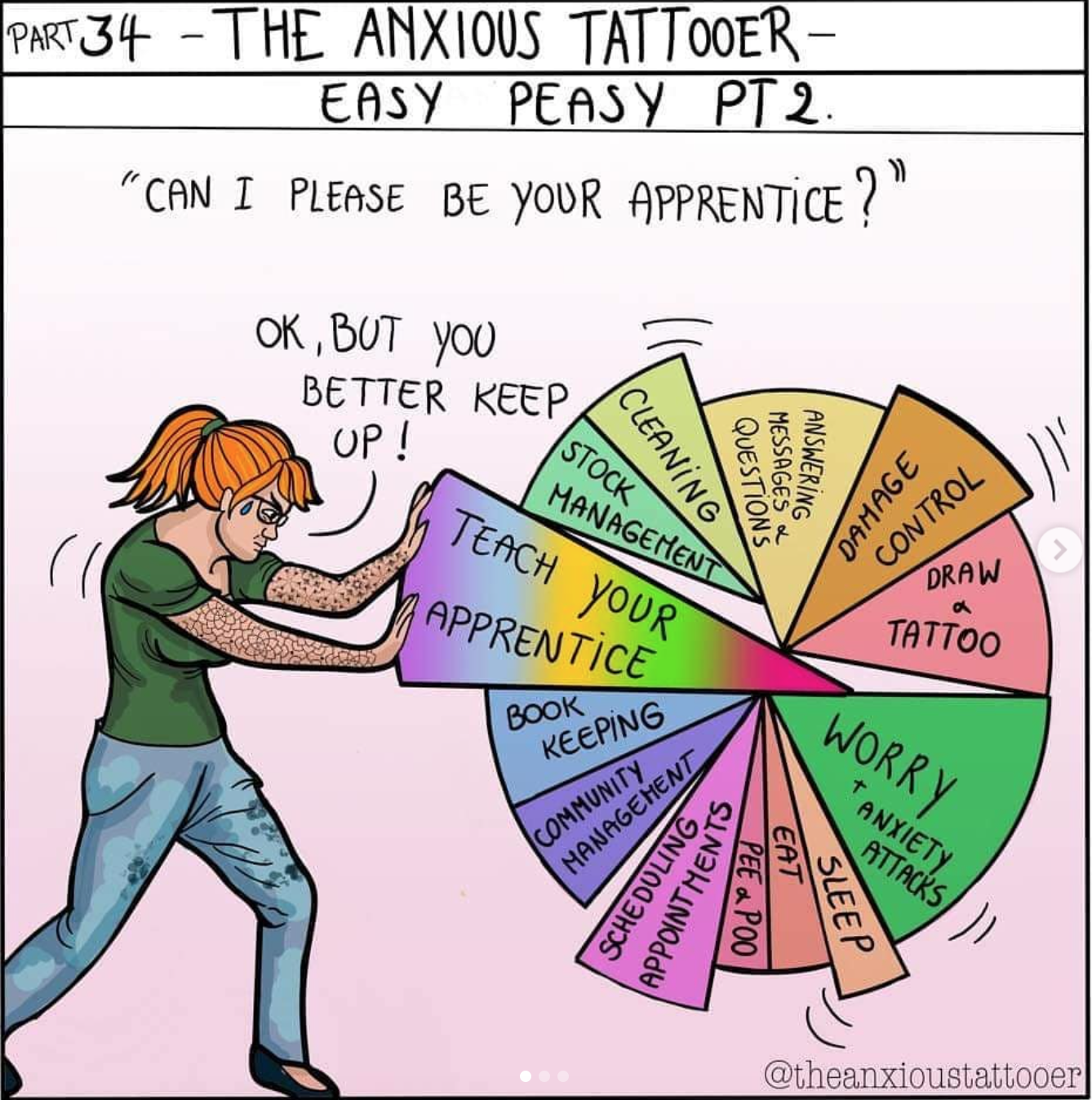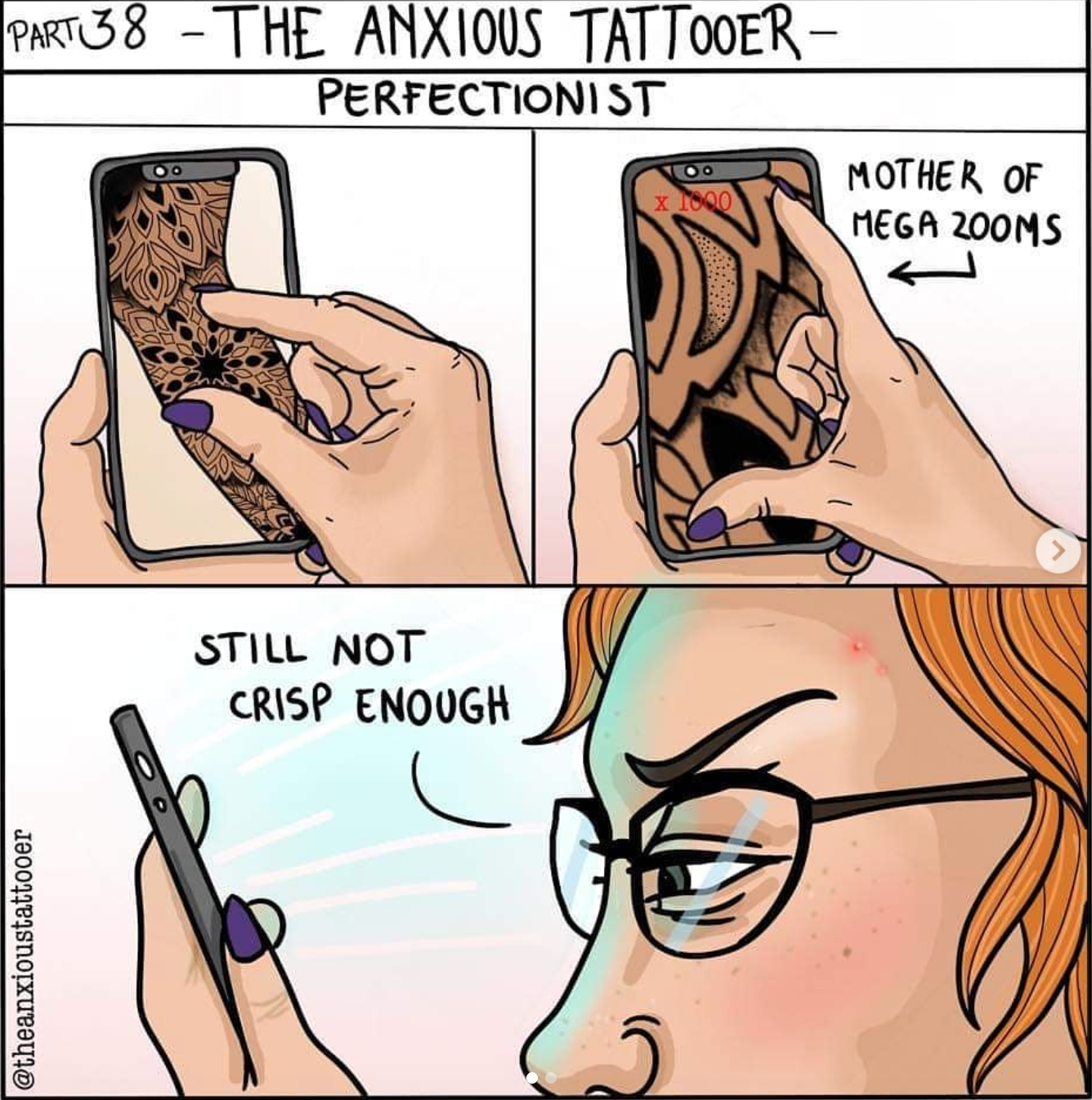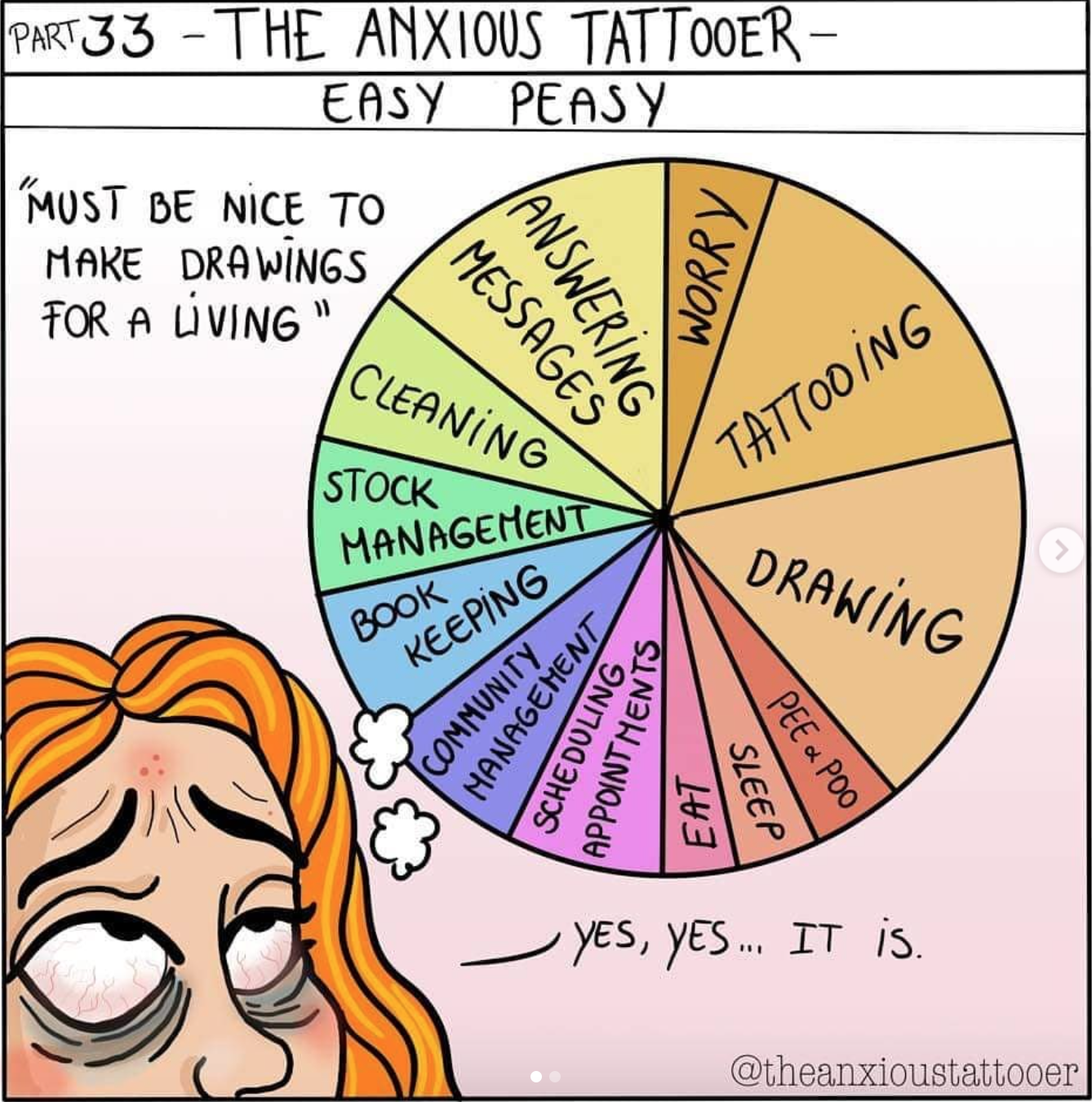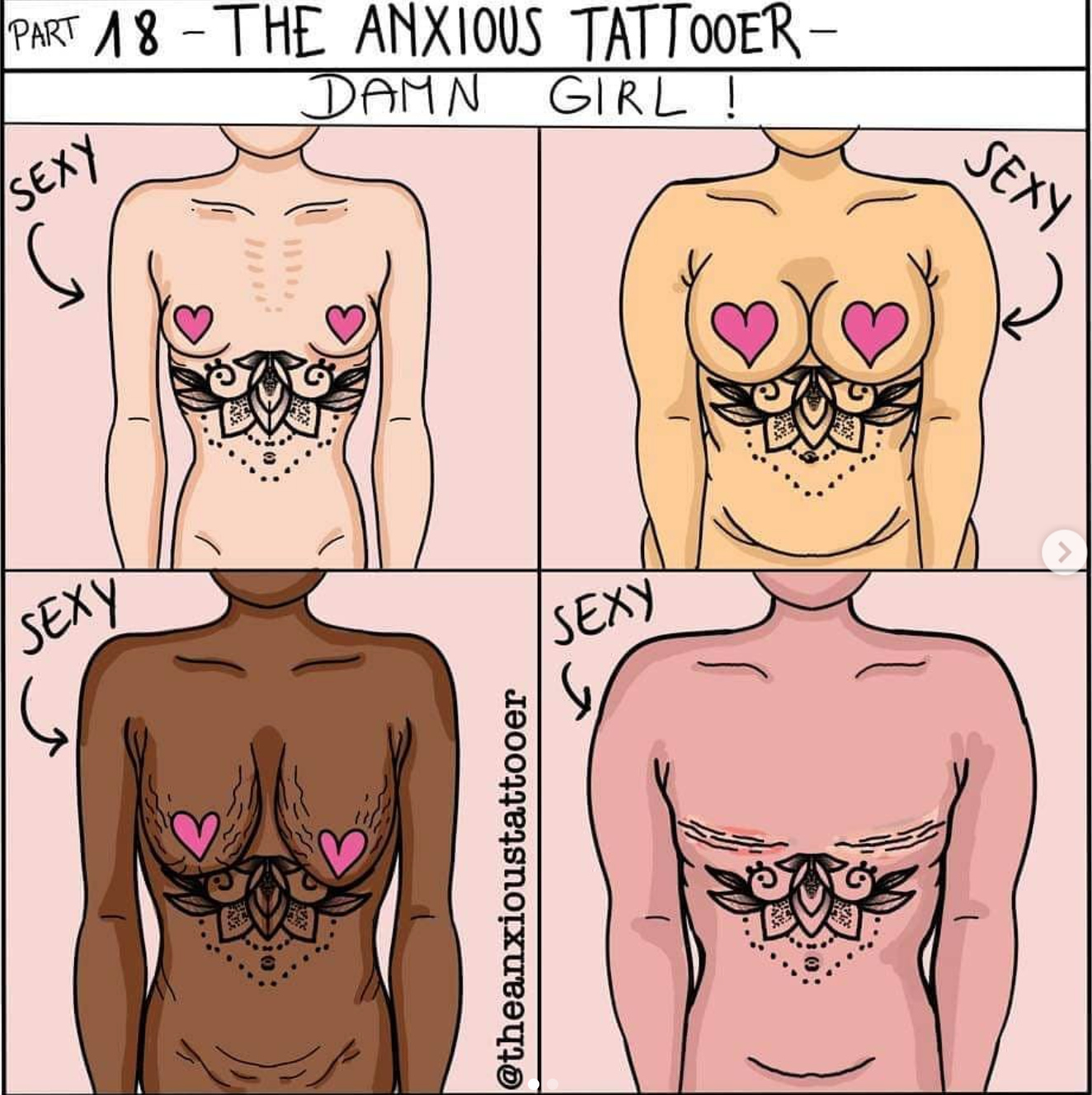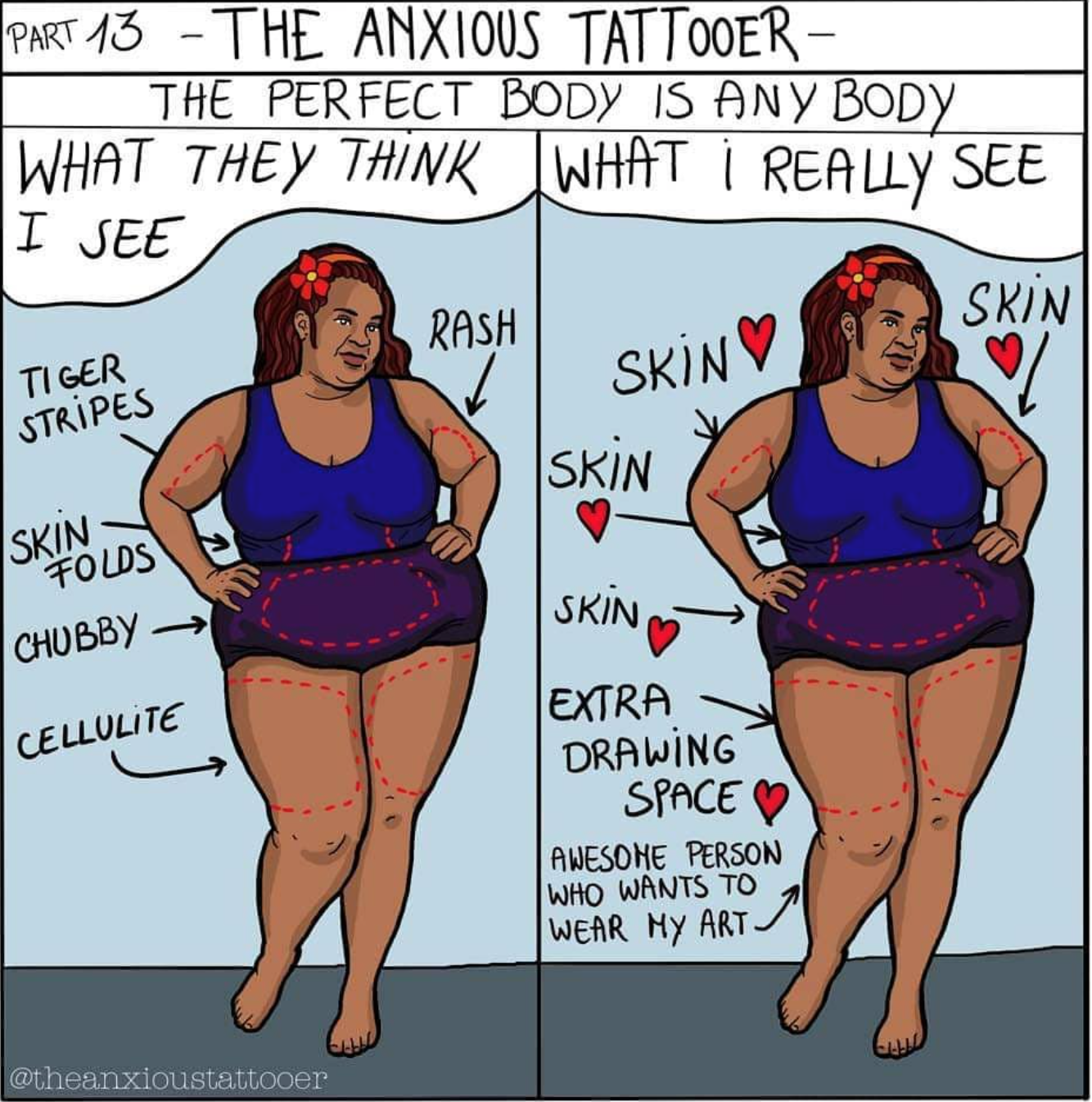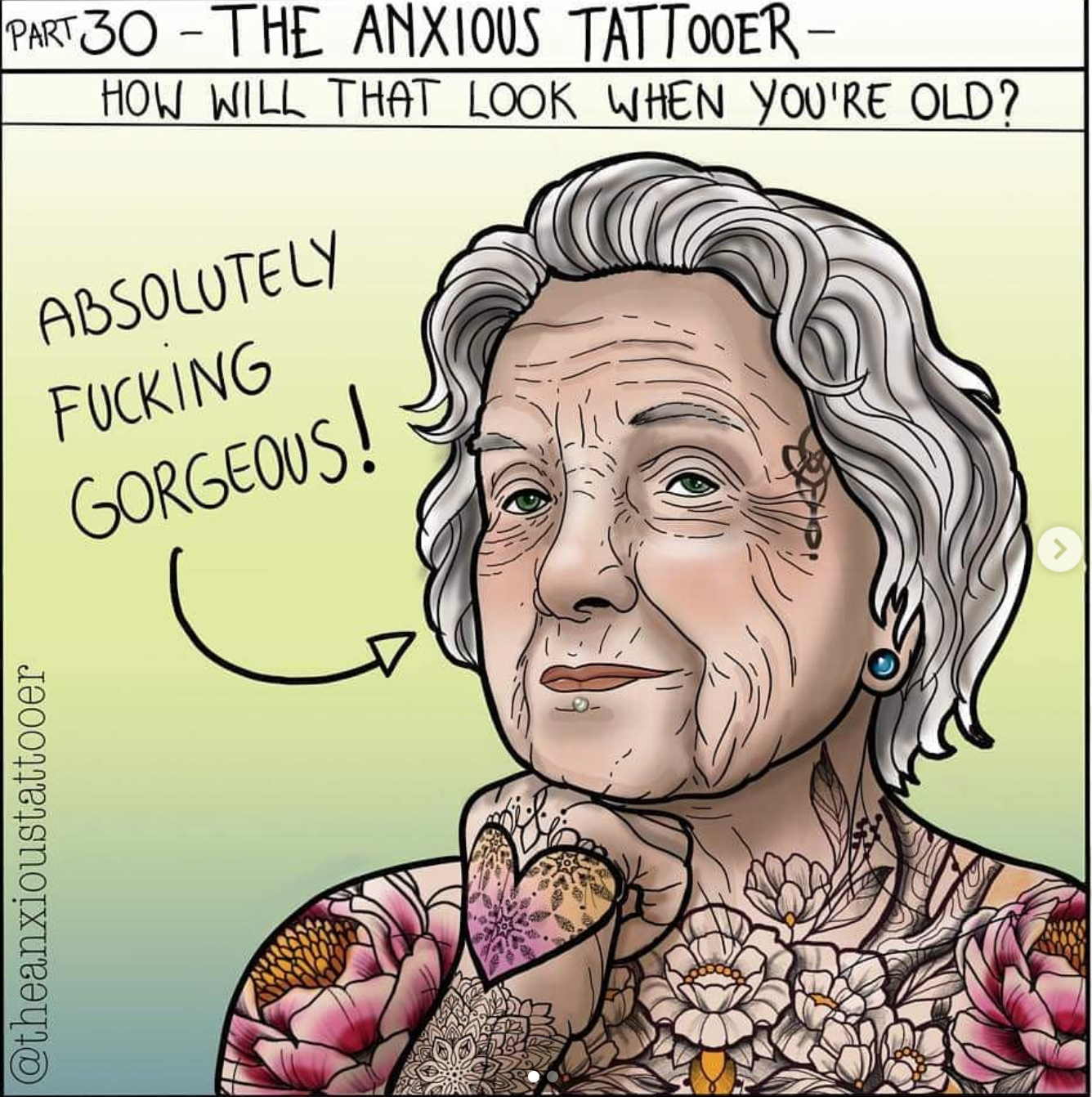The Anxious Tattooer: Charlotte Legrand Gets Real Through Comics
Belgian tattoo artist, Charlotte Legrand, has struggled with anxiety and a desire for perfectionism most of her life. The 28-year-old, who owns Arcana Body Art in Charleroi, admits that tattooing isn’t exactly the easiest job for someone with those traits.
“I believe it can be a very rewarding job to be a tattoo artist because you get to meet and share with so many people. But being self-employed is hard,” she says. “Most of my time is spent doing paperwork, paying bills, running errands, and handling social media.”
Throw on top of that the constant self-doubt that runs through Legrand’s mind, and you have the perfect formula for burnout and a shaky mental state.
Drawing to Relieve Anxiety
In May of 2019, Legrand was feeling particularly down. “I was overstressed, had a lot of anxiety, and missed drawing for my personal relaxation,” she says. “When opening a shop, drawing becomes work. I needed a way out of that work-draw cycle and decided to make silly comics, with little to no detail that I could draw quickly.”
Legrand sat down and drew her first comic in about an hour. That’s when The Anxious Tattooer, an Instagram-based, tattoo-focused comic strip, was born.
“I felt so relaxed and happy,” says Legrand. “I had a huge rush of inspiration for at least 20 other subjects. I just felt the need to continue.”
Since launching the Instagram account, Legrand has published over 40 comic drawings, each taking between 1-2 hours to draw. Her relatable humor and relatable subject matter has attracted the attention of fellow tattooers and tattoo collectors alike. Since its launch, Legrand’s following has grown to over 30,000 fans.
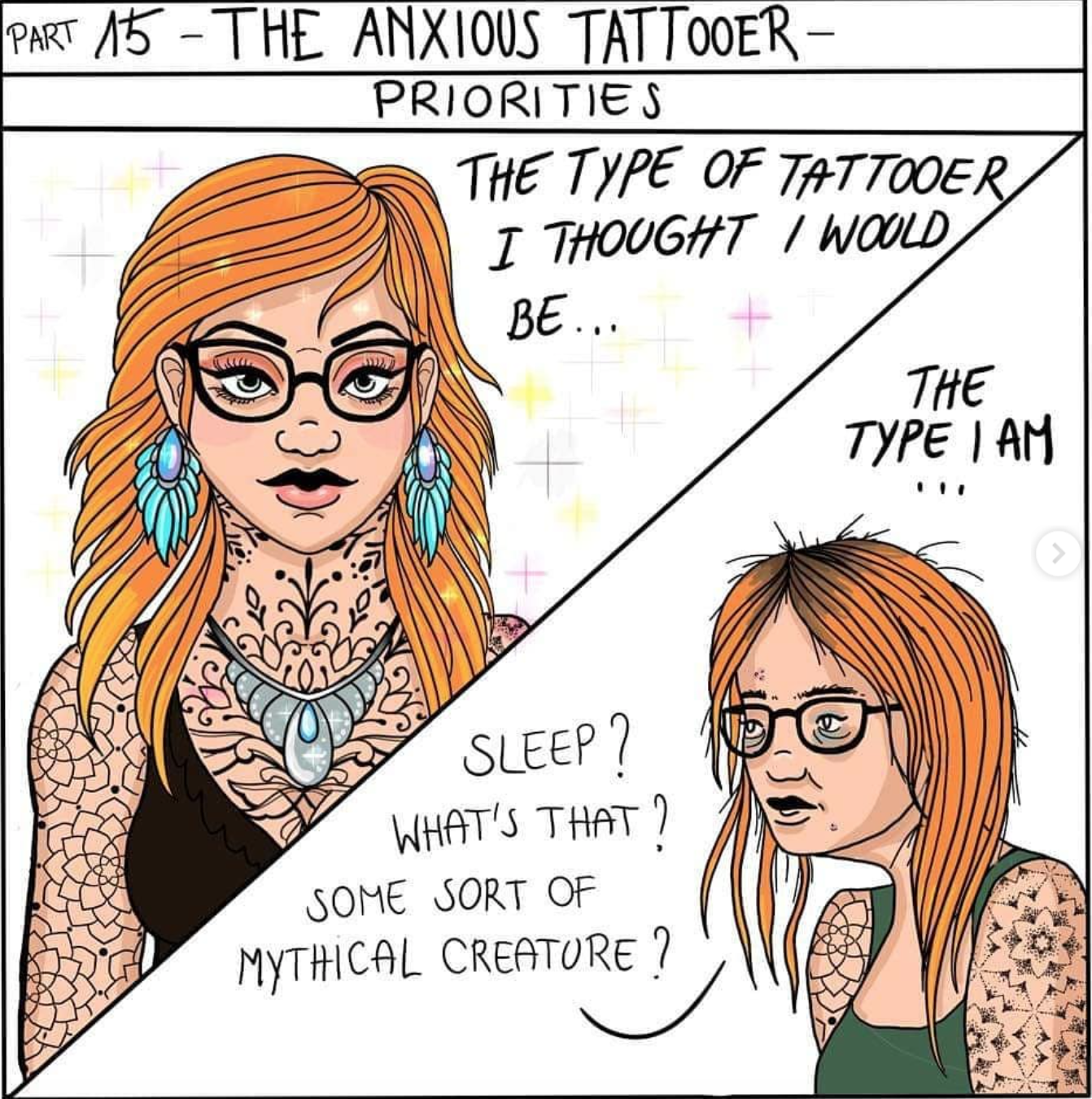
“I never expected it to blow up and get such a following,” she says. “It all started as a fun side project and now it has grown into a bigger community than my actual tattooing pages.”
Pulling Inspiration from Shared Experiences
Legrand says that inspiration from her tattoos mostly comes from her own life or the stories she hears from her clients. She says it’s important to showcase both sides of the tattoo experience—the artist and the client—in her work.
“I felt there was not enough positivity in other tattoo-related humor—too much complaining and bashing,” says Legrand. “I wanted to be able to educate both sides, without being mean about it. Humor has always been a good way to send a difficult message.”
In her comics, Legrand has tackled serious subjects such as the need for more diversity and inclusion within the industry and classic stereotypes that just don’t hold up. She tackles the tribulations of tattoo artists—such as paying taxes, time management, and lack of sleep—with spot-on hilarity.
But she also captures the fears and anxieties of clients, who often feel confused, vulnerable, and self
“I want collectors to remember that we are all human—that they need not be afraid of us tattooers because we also have doubts and feelings and all of that emotional stuff going on,” says Legrand. “I want tattooers to remember that our clients are lovely people and that they do not live our lives, and therefore, do not know about our set of “rules” in the tattoo business.”
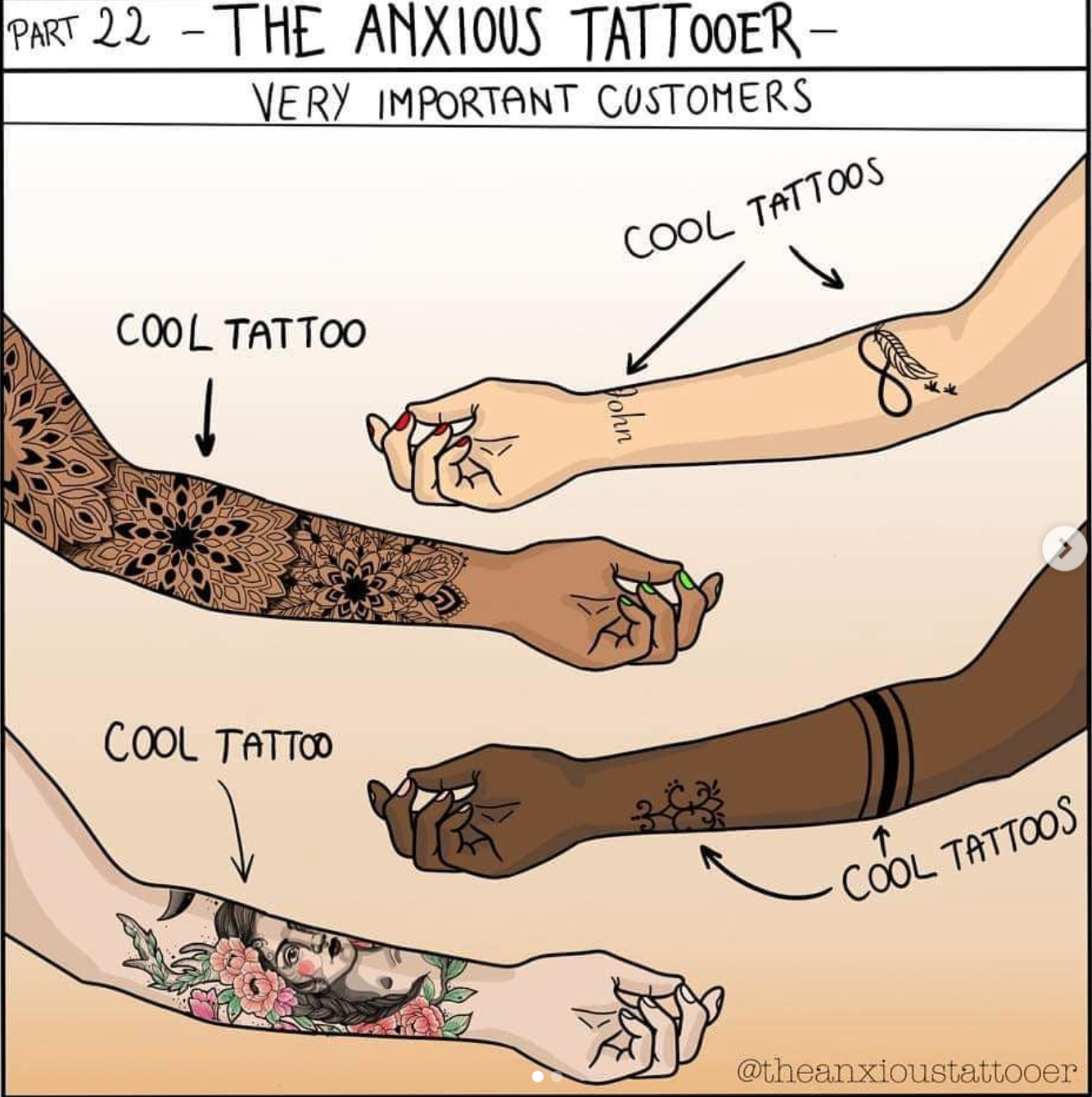
Legrand tries to use humor in The Anxious Tattooer as a way to help clients and tattoo artists communicate better and understand each other’s perspectives will ultimately make for better experiences.
Spreading a Message of Positivity
Legrand hopes that The Anxious Tattooer will help provide some levity and a sense of community for people scrolling through their social media feeds. She wants to use the comics as a way to share camaraderie with other artists and to spread a message of positivity and inclusion for tattoo clients and collectors.
“Body positivity is very important to me. I can’t count the number of people coming to my shop asking for tattoos and immediately apologizing for certain aspects of their skin,” she says. “Girls who choose not to shave, and then
Since starting the comic strip, Legrand says that her entire perspective about social media has changed. What used to be a business chore or a medium to constantly compare herself to other artists has become a place to meet new people and start conversations.
“Social Media is a cold and distant world, and in business, people usually just want to know how much they’ll have to pay you and how fast they can get an appointment,” she says. “Since making the comics, I’ve received so many out-of-the-blue messages with kind words, hearts, people encouraging or thanking me. That really feels so so so good. I feel human again.”
Even though the comic has caught on like wildfire, Legrand says that she doesn’t feel pressure to make new drawings. She plans to continue producing the comics as a stress-relieving outlet and is content to create work for The Anxious Tattooer when she has the time.
Legrand hopes that those who follow along with the comic strip—tattooers, collectors, and everyone in between—will get a chuckle and a mood boost. Because at the end of the day, she just wants to make people happy.
“We’re all a bunch of meat envelopes with emotions,” she says. “Maybe we should hug more.”
